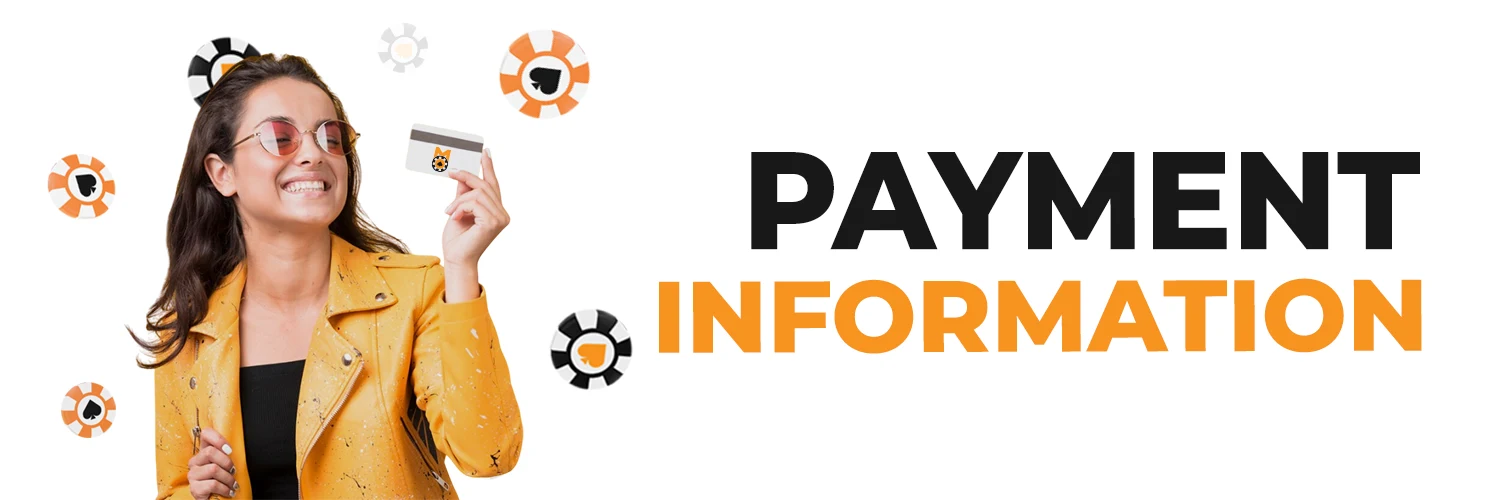We’ve tested dozens of online casinos, and one question keeps coming up – where can I find non GamStop slots that still feel legit? So we rolled up our sleeves and went deep into the scene. We played, deposited, withdrew, and checked the fine print.
This guide is for players looking for slot sites that aren’t tied to GamStop, but still offer solid gameplay, fast payments, and fair rules. GamStop is a free self-exclusion scheme in the UK that blocks access to registered betting sites. Whether you’re taking a break from UK-licensed sites or just want more freedom, we’ve got you covered. Here’s what we found and what you should know before you spin.
Top Picks You Can Trust
We’ve handpicked a few non-GamStop slot sites that stood out during our testing. These brands offer fast registration, strong game variety, and smooth payouts, without the usual UK restrictions. We focused on safety, fair terms, and overall ease of use. Below is a quick overview of the top sites worth checking out.
| Name | Betti Casino | R2PBet | NRG | Casinoways |
| License | Curaçao | Curaçao | UKGC | Curaçao |
| Game quantity | 4,000 | 3,500 | 4,000 | 3,000 |
| Maximum withdrawal | £2,500 (daily) | £1,000 (daily) | £2,500 (daily) | £5,000 (daily) |
| Welcome bonus | Not available currently (coming soon) | 100% up to £450 and 250 spins | No welcome bonus | 100% up to £300 and 100 spins |
| RTP | 96% | 95.5% | 96% | 96% |
How We Pick Our Top Choices

We don’t just list random sites – we test them ourselves. Every casino on our list has been fully explored: we’ve registered, deposited, played, claimed bonuses, and cashed out – just like any regular player would. Why? Because anyone can build a flashy website, but not every site delivers a smooth and safe playing environment, especially when it’s outside the UK’s GamStop network.
When it comes to non GamStop online slots, we’re not looking for gimmicks, we’re looking for real value. That means game quality, transparency, and fast service. You won’t find any brands here that made the cut by chance. Here are the key things we look at before recommending any brand:
- Slot Variety – We want to see more than the same recycled titles. We look for hundreds (sometimes thousands) of slot games, from classic fruit machines to modern video slots, plus progressive jackpots with serious prize potential.
- Ease of Access – We know many players come to non-GamStop sites to skip long ID checks. We prioritise brands with fast, hassle-free registration and instant access to gameplay.
- Withdrawal Speed – We test cashouts ourselves. Sites with delayed or complicated withdrawals don’t make the list. Fast processing, especially for crypto, is a must.
- Wagering Terms – A big bonus means nothing if you can’t withdraw it. We favour reasonable wagering conditions and clear bonus rules, not hidden traps.
- Safety & Encryption – Even if a site isn’t licensed by the UKGC, we still expect strong data protection, SSL encryption, and responsible money handling. Your personal and financial info should never be at risk.
Only the casinos that pass all of these checks with a solid score earn a spot in our recommendations.
Our Top-Rated Casinos
After testing dozens of non-GamStop slot sites, we narrowed it down to three that ticked all the right boxes. These casinos offer a smooth sign-up, strong slot libraries, and quick payouts, even without UK regulation. Each one brings something different to the table, but they all deliver where it counts. Below, you’ll find a quick breakdown of our top picks and what makes them stand out.
Betti Casino
We gave Betti Casino a go and found it’s a no-frills, fast-access platform for non GamStop slots. It runs under a Curaçao licence, which gives it more flexibility than UKGC casinos, especially when it comes to fewer restrictions on gameplay and account limits. The downside? There’s no welcome bonus, so don’t expect any extras on your first deposit. Still, the slot library is big, and the games load fast. What’s also noteworthy is that the casino, despite being new, offers access to games from such well-known developers as Spribe, Play’n GO, Hacksaw Gaming, Novomatic, Quickspin and more. If you’re here to play without distractions or lengthy sign-up checks, Betti does the job well.
Our score: 4.3/5.
R2PBet
R2PBet impressed us right out of the gate with a 100% bonus up to £450 + 250 free spins. That’s a strong start for a non-GamStop site. It’s also licensed in Curaçao, which means less red tape and more freedom for UK players who want to bypass GamStop limits. For starters, you can expect cryptocurrency for deposits and withdrawals, which is a nice addition. Slot variety is excellent, with both popular titles and niche options. There’s a lot of popular software developers here, such as Playtech, Novomatic, Spribe, Play’n GO or NetEnt. The layout’s clean, support is responsive, and withdrawals were smooth during our tests. Solid all-around, especially if you like starting with a boost.
Our score: 4.7/5.
NRG
NRG operates with a UKGC licence, and earns a place on our list for its clean setup and reliability. There’s no welcome bonus, which may put off bonus hunters, but what you get in return is strong game fairness, player protection, and a well-curated slot selection. Despite the welcome bonus being unavailable, there are promotions for registered players – a good example is “Slots Club”, thanks to which you can earn 50 free spins every week by betting at least £250 on selected games. It’s ideal for those who want a more traditional experience, minus the extra fluff. Safe, smooth, and to the point.
Our score: 4.2/5.
Trust & Protection: Security and Licensing
When we review recommended casinos, licence quality is one of the first things we check. A UKGC licence means strict rules and high player protection. A Curaçao licence, while more flexible, still offers basic regulation – great for players looking for non-GamStop options. We make sure the licence info is real and visible on the site.
Across the board, the casinos we recommend use SSL encryption to keep your data and payments secure. We tested deposits and withdrawals ourselves – transactions were smooth, stable, and didn’t raise any red flags. Security is always non-negotiable.
Bonus Deals You Should Know About
We’ve come across all kinds of casino bonuses while testing these sites, and some stand out more than others. Whether it’s a strong welcome deal or a small reload that keeps your balance going, each type of bonus has its purpose. Below is a simple breakdown of the most common bonus types you’ll find at our recommended casinos, including non-GamStop platforms.
| Bonus type | What it offers |
| Welcome Bonus | Extra funds or free spins for new players after first deposit |
| Cashback | A percentage of your losses returned, often daily or weekly |
| Special Promotions | Time-limited offers tied to events, new games, or holidays |
| Drops & Wins | Random daily or weekly prize drops while playing select games |
| Reload Bonus | Bonus funds on second, third, or later deposits |
| VIP Perks | Personalised offers, higher limits, faster withdrawals |
| Loyalty Program | Earn points for wagering, redeem for bonuses or spins |
| Free Spins | Spins on selected slot games – standalone or part of a package |
| No Wagering Bonus | Bonus funds or spins with zero playthrough requirements |
What Games You Can Play

We explored the game libraries of each recommended casino, and there’s no shortage of variety. From classic slots to fast-paced live tables and sports betting, these platforms cover all the major game types, and then some. Whether you’re into spinning reels, placing smart bets, or trying something new, there’s always something worth playing. Here’s a quick look at the most popular game categories and examples you’ll find across the sites we tested.
Classic Slots
Classic slots online bring you simple gameplay with nostalgic symbols like fruits, bells, and lucky sevens. Perfect for players who enjoy easy-to-understand mechanics without complicated bonus rounds.
| Slot Game | RTP | Provider | Max Win |
| Fire Joker | 94.23% | Play’n GO | x800 |
| Mystery Joker | 93.99% | Play’n GO | x6020 |
| Ultra Hot Deluxe | 95.17% | Novomatic | x750 |
| Mega Joker | 99% | NetEnt | x2000 |
| Triple Diamond | 95.06% | IGT | x1199 |
Table Games
Table games are a cornerstone of casino gaming, offering strategic depth and a blend of chance and skill that appeals to a wide range of players. From the suspense of the roulette wheel to the calculated decisions in blackjack, these games provide diverse experiences that have stood the test of time.
| Slot Game | RTP | Provider | Max Win |
| Blackjack Classic | 99.54% | Fugaso | 2x bet |
| European Roulette | 97.3% | NetEnt | 35x bet |
| Baccarat | 98.94% | Play’n GO | 8x bet |
| Casino Hold’em | 97.84% | Evolution | 100:1 |
| Craps | 99.17% | Microgaming | Varies |
Live Games
Live casino games bridge the gap between traditional brick-and-mortar casinos and online gaming by offering real-time, interactive experiences with professional dealers. Players can engage in classic table games and innovative game shows, all streamed in high definition to their devices.
| Slot Game | RTP | Provider | Max Win |
| Lightning Roulette | 97.30% | Evolution | 500x bet |
| Crazy Time | 96.08% | Evolution | 20,000x bet |
| Monopoly Live | 96.23% | Evolution | 10,000x bet |
| Deal or No Deal Live | 95.42% | Evolution | 500x bet |
| Dream Catcher | 96.58% | Evolution | 40x bet |
Betting Beyond the Casino
We found that several of the recommended casinos offer full sportsbook sections alongside slots and tables. These betting platforms cover all the major leagues and events, including live and pre-match options. Whether you’re into football, tennis, or even niche sports like darts or esports, there’s a solid range of markets. Odds are updated in real-time, and the interface is easy to use, even for beginners.
| Bet Type | Description |
| Single Bet | One event, one outcome |
| Accumulator | Multiple selections in one bet—win all to get paid |
| Live/In-Play Bet | Bet during the match with dynamic odds |
| Over/Under | Bet on totals (goals, points, etc.) being over or under a set line |
| Handicap Bet | Odds adjusted to balance stronger vs. weaker teams |
| Both Teams to Score | Bet on whether both sides will score in a match |
| Outright Winner | Pick the winner of a tournament or league |
Play Anywhere: Mobile Setup and App Info
Most offer a smooth browser-based version that runs well on both Android and iOS, no downloads needed. A few even have dedicated mobile apps with faster loading times and push notifications for promos or tournaments.
Navigation is clean, games adjust to smaller screens without losing quality, and payments work just as well as on desktop. Whether you’re spinning slots or placing a sports bet, these platforms are fully mobile-friendly and built for on-the-go play.
Banking Basics: Deposits and Payouts

We made real deposits and withdrawals at each recommended casino to see how smooth the process is. Most sites support both traditional and modern payment methods, including options that work well for UK players outside GamStop. Transactions were fast and secure, and withdrawal times were reasonable. Just keep in mind that daily limits vary, usually ranging from £1,000 to £5,000, depending on the method and the brand.
| Payment Method | Type | Used for | Daily Withdrawal Limit |
| Debit Card | Visa, Mastercard | Deposits & Withdrawals | £1,000 to £5,000 |
| Bank Transfer | Direct to UK banks | Withdrawals only | £1,000 to £5,000 |
| Crypto | Bitcoin, USDT, etc. | Deposits & Withdrawals | £1,000 to £5,000 |
| E-wallets | Jeton, MuchBetter | Deposits & Withdrawals | £1,000 to £5,000 |
| Voucher/Card | Paysafecard, Flexepin | Deposits only | £1,000 to £5,000 |
Getting Help: Customer Service Info
We contacted support at all four recommended casinos to see how helpful and fast they really are. Overall, service was solid. Most offer 24/7 live chat, which is the fastest way to get help. You’ll also find email support at every site, and some include a built-in FAQ section for quick answers. Responses were polite and clear during our tests, with real people, not bots, handling live chat.
| Casino | Live Chat | Email Support | FAQ Section |
| Betti Casino | 24/7 | [email protected] | Yes |
| R2PBet | 24/7 | [email protected] | Yes |
| NRG | 24/7 | [email protected] | Yes |
| Casinoways | 24/7 | [email protected] | Yes |
Gambling Laws in the UK
In the UK, gambling isn’t a free-for-all, it’s tightly controlled by the UK Gambling Commission (UKGC). This body makes sure that every licensed operator follows strict rules around fairness, transparency, and player protection. From how games work to how ads are shown, everything is monitored. UK-licensed casinos must verify your identity, offer tools for self-exclusion, and keep your funds in protected accounts.
But here’s the catch: some players feel limited by these rules, especially when using tools like GamStop. That’s why some look for non-GamStop sites. Just know—those casinos don’t fall under UK law, so the safety net isn’t the same. Still, if you value regulation and a well-guarded experience, UKGC-licensed sites remain the gold standard.
Final Thoughts: Why These Casinos Made the Cut
After hours of testing, comparing, and digging into the fine print, we can confidently say our recommended casinos strike the right balance between freedom and function. Whether you want best non GamStop slots, fast sign-ups, or a flexible bonus setup, these sites deliver. You’ll find big game libraries, smooth mobile play, crypto support, and helpful customer service ready around the clock.
Betti Casino is perfect for players looking for straightforward gaming, offering fast-loading non GamStop slots and minimal sign-up hassle. R2PBet stands out with an impressive bonus package, crypto-friendly banking, and a robust selection of slots, making it an ideal choice if you like extra perks from the start. For UKGC-regulated gaming that combines reliability with regular player rewards, NRG provides excellent fairness, security, and ongoing promotions without overwhelming distractions. Some offer welcome bonuses, others keep it simple, but all provide solid value, privacy, and fewer restrictions. If you’re looking for a place to play that doesn’t follow the same old rules, these casinos are worth checking out.

